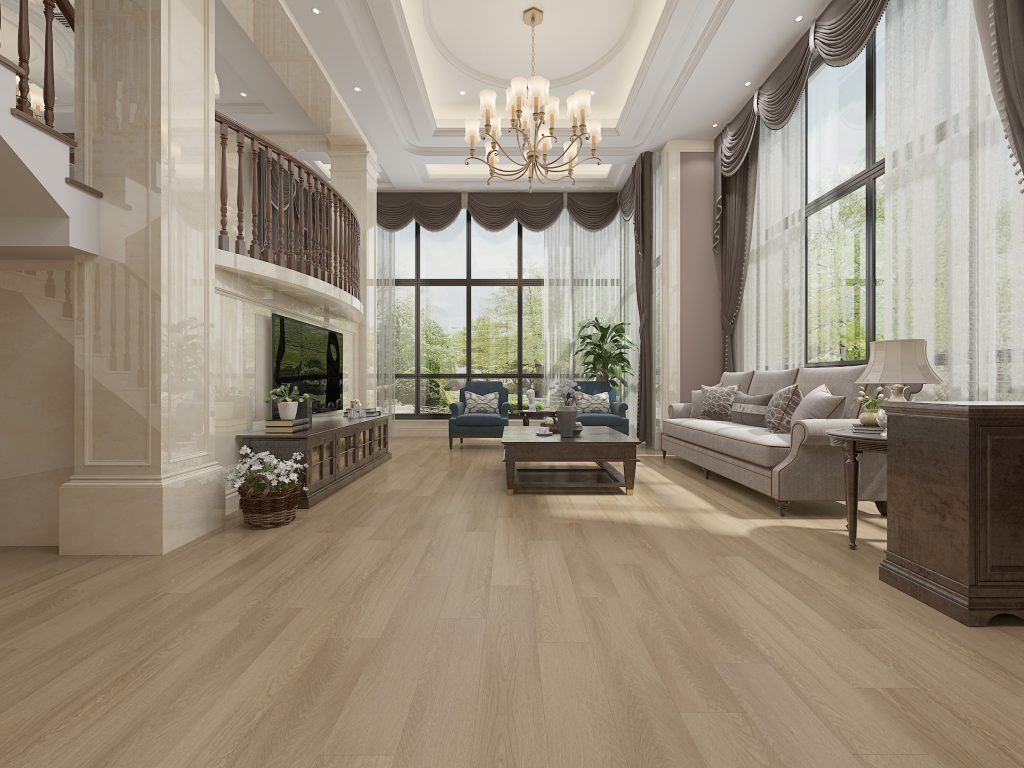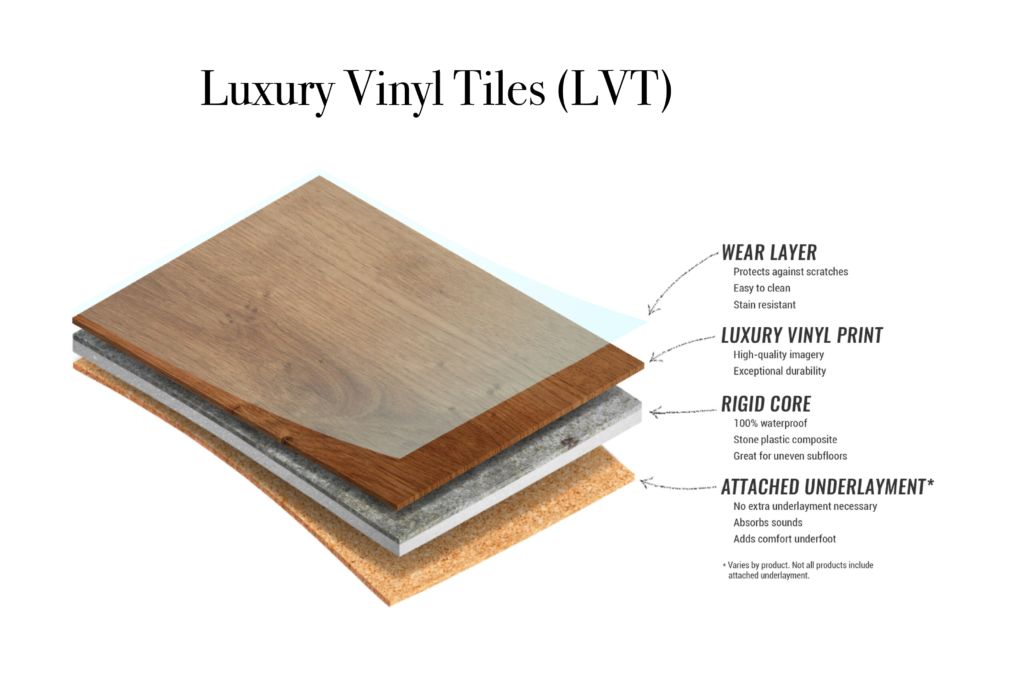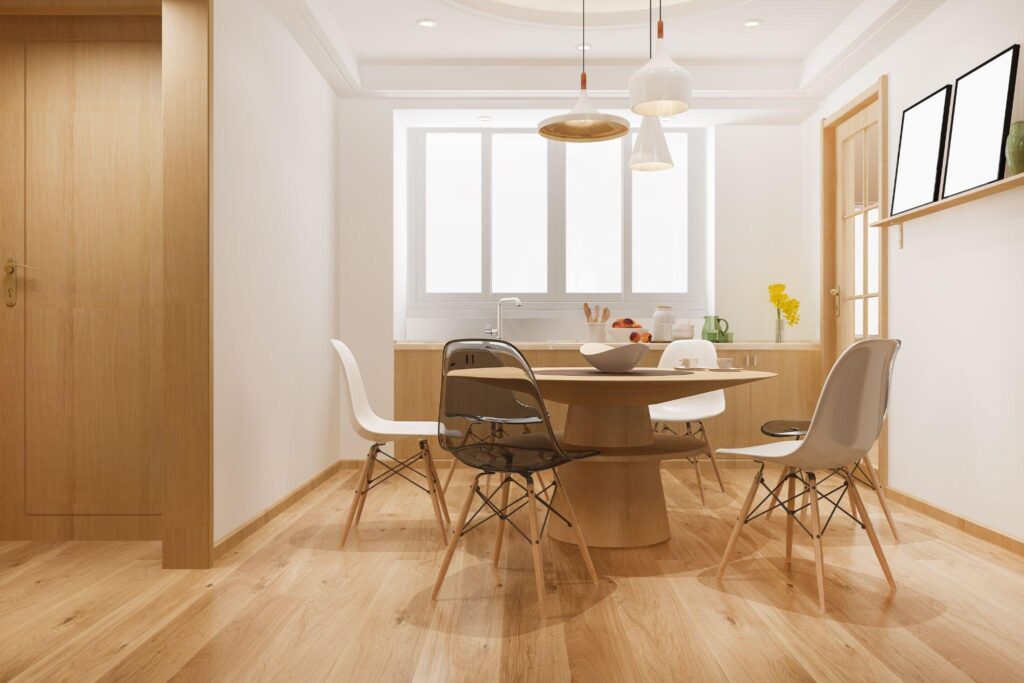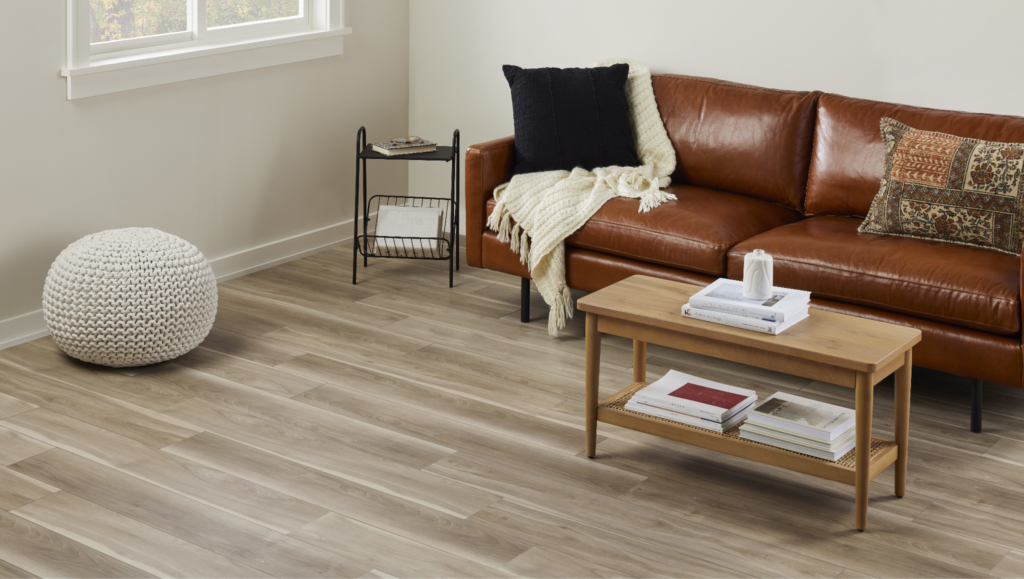
Vinyl flooring is becoming an increasingly popular choice among homeowners due to its numerous advantages over other flooring types. As you embark on your journey to purchase vinyl flooring, you might have several questions. To help you make an informed decision and find the right vinyl flooring for your home, here are some important questions to consider:
How Is Vinyl Flooring Made?
Vinyl flooring is a synthetic product made of plastic. It consists of several layers, with the top layer known as the wear layer, which is crucial for durability and performance. There are three types of wear layers to choose from:
a. Vinyl no-wax finish: Suitable for low-moisture, low-traffic areas.
b. Urethane finish: More durable, suitable for moderate foot traffic.
c. Enhanced urethane finish: Highly resistant to scratches and stains, ideal for heavy foot traffic.
Beneath the wear layer is the decorative or printed layer that provides the vinyl with its color and design. A foam layer follows, and finally, the backing, which is essential for enhancing resistance to mildew and moisture. The thickness of the backing is indicative of the vinyl flooring’s quality.
What Formats Can I Get?
Vinyl flooring is available in different formats to suit your preferences and needs:
1. Vinyl sheets: Offer a smooth and seamless appearance, available in rolls ranging from 6 to 12 feet wide. Ideal for moisture-prone areas like bathrooms.
2. Luxury Vinyl Tiles: Resemble ceramic or porcelain tiles and usually come in 12- or 18-inch squares with a self-adhesive back for easy installation and replacement.
3. SPC Vinyl planks: Mimic the look of hardwood planks, typically measuring 4 to 6 inches wide and 3 to 4 feet in length.
How Durable Is Vinyl Flooring?
Vinyl flooring is renowned for its durability, especially when equipped with a thick wear layer. It is highly resistant to dents, stains, rips, and scuffs. Being made entirely of plastic, vinyl flooring also boasts exceptional moisture resistance, making it ideal for high-traffic areas and rooms exposed to moisture.
Where Can I Install Vinyl Flooring?
Vinyl flooring’s versatility allows installation in various rooms throughout the house. Its durability makes it suitable for areas with heavy foot traffic, such as entryways. Additionally, its water-resistant properties make it ideal for moisture-prone rooms like bathrooms, kitchens, laundry rooms, and basements. If you desire the look of tile but prefer a softer flooring option for bedrooms and living rooms, vinyl flooring is an excellent choice.
However, keep in mind that extreme temperatures, sharp objects, and prolonged exposure to direct sunlight may damage vinyl flooring, making it unsuitable for outdoor or indoor/outdoor use.
How Much Does It Cost?
Vinyl flooring offers an array of affordable options. The price varies depending on the wear layer’s thickness, with SPC vinyl flooring typically ranging from $2 to $6 per square foot. Luxury vinyl tile (LVT), which closely resembles natural materials like stone or wood, comes with a slightly higher price tag, averaging $3.75 to $15 per square foot due to its thicker wear layer and realistic appearance.
Can I Repair or Replace It?
Though durable, vinyl flooring may sustain damage over time. If you have vinyl sheets, you can either attempt to patch the damaged area with leftover scraps or replace the entire sheet. For vinyl planks or tiles, replacing damaged pieces is easier; you only need to remove the affected plank or tile and replace it with a spare one.
How Do I Clean Vinyl Flooring?
Vinyl flooring is relatively easy to maintain. Regular sweeping and occasional damp mopping are sufficient for keeping it clean. Although vinyl is water-resistant, it’s essential to avoid using a soaking wet mop to prevent liquid from seeping between the panels, potentially weakening the adhesive or causing mold. Promptly wiping up spills is crucial.
In conclusion, when shopping for vinyl flooring, understanding the manufacturing process, available formats, durability, installation options, cost, repairability, and maintenance will empower you to make a well-informed choice that best suits your needs and enhances your home’s interior.



